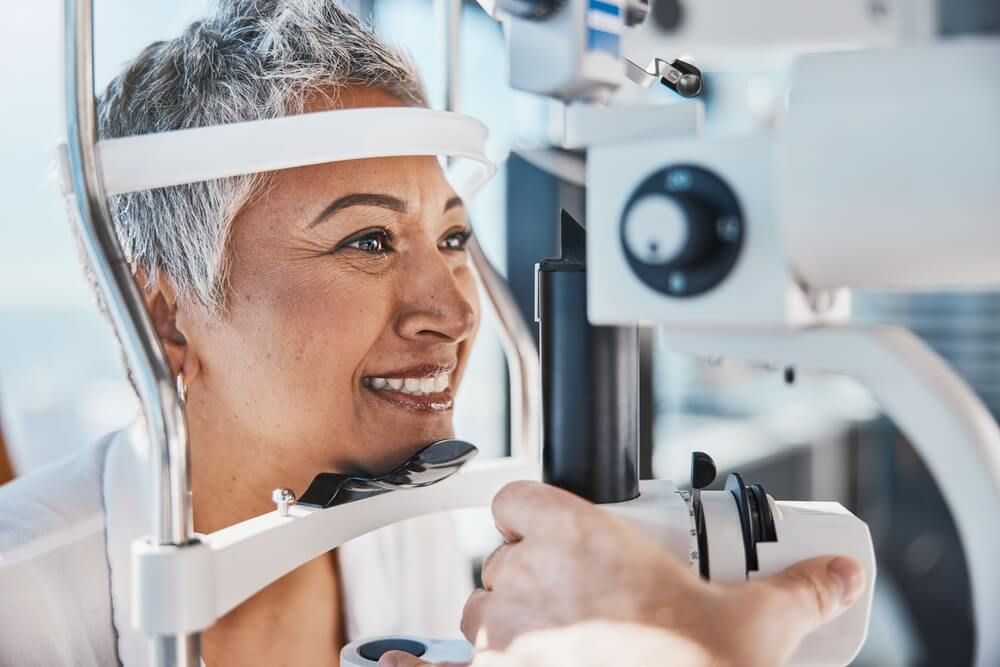The retina is a crucial component of the eye, responsible for capturing light and sending visual signals to the brain. Because of its vital role in vision, any condition affecting the retina can significantly impact eyesight and overall quality of life. At Colorado Eye Clinic in Greenwood Village (South Denver Metro), we are committed to educating our patients about retinal health and providing state-of-the-art care for various retina conditions.
Common Retinal Conditions
1. Diabetic Retinopathy
Diabetic retinopathy is a common complication of diabetes that affects the blood vessels in the retina. High blood sugar levels can damage these tiny vessels, leading to leakage, swelling, and abnormal blood vessel growth. This condition can progress through different stages, ranging from mild non-proliferative retinopathy to more severe proliferative retinopathy, where abnormal blood vessels grow on the retina.
Symptoms: In the early stages, diabetic retinopathy may not present any noticeable symptoms. As the condition progresses, symptoms can include blurred vision, floaters, dark spots, and difficulty seeing colors.
Treatment: Controlling blood sugar, blood pressure, and cholesterol levels are essential to managing diabetic retinopathy. In more advanced cases, treatments such as intravitreal injections, laser therapy, or surgery may be required to prevent vision loss.
2. Macular Degeneration
Macular degeneration, also known as age-related macular degeneration (AMD), affects the macula, the central part of the retina responsible for sharp, detailed vision. AMD is a leading cause of vision loss in older adults and is categorized into two types: dry AMD and wet AMD. Dry AMD is more common and progresses slowly, while wet AMD is less common but more severe, involving abnormal blood vessel growth under the retina.
Symptoms: Symptoms of AMD include blurred or distorted central vision, difficulty reading or recognizing faces, and dark or empty areas in the center of vision.
Treatment: While there is no cure for AMD, treatments like nutritional supplements can slow the progression of dry AMD. For wet AMD, intravitreal injections of anti-VEGF (vascular endothelial growth factor) medications can reduce abnormal blood vessel growth and prevent further vision loss.
Additionally, we offer FDA-approved intravitreal injections specifically designed to slow the progression of atrophy, or tissue loss, in patients with dry AMD. These injections work by targeting the underlying factors contributing to the degeneration of retinal cells, helping to preserve vision and prevent further deterioration.
3. Retinal Vein Occlusion
Retinal vein occlusion occurs when a blood clot blocks a vein in the retina, leading to fluid leakage and swelling. This blockage can result in vision loss and is more common in people with conditions like high blood pressure, diabetes, or glaucoma.
Symptoms: Sudden and painless loss of vision, blurry vision, or seeing dark spots (floaters) are common symptoms of retinal vein occlusion.
Treatment: Managing underlying conditions like hypertension and diabetes is crucial. Treatments may include intravitreal injections to reduce swelling or laser therapy to seal leaking blood vessels and prevent further damage.
4. Retinal Holes, Tears, and Detachment
Retinal holes and tears occur when the retina becomes thin and weak, leading to a break in the tissue. These breaks can result in retinal detachment, a severe condition where the retina separates from the back of the eye. Retinal detachment is a medical emergency requiring prompt treatment to prevent permanent vision loss.
Symptoms: Symptoms of retinal holes or tears may include sudden flashes of light, floaters, or a shadow or curtain effect over the field of vision. Retinal detachment often presents with a sudden increase in floaters, flashes, and significant vision loss.
Treatment: Treatment depends on the severity and location of the hole, tear, or detachment. Retinal tears and holes can often be treated with laser therapy or cryotherapy (freezing) to create scar tissue that helps seal the retina. Retinal detachment usually requires surgical intervention, such as pneumatic retinopexy, scleral buckle surgery, or vitrectomy.
5. Plaquenil (Hydroxychloroquine) Toxicity
Plaquenil, also known as hydroxychloroquine, is a medication commonly used to treat autoimmune diseases like rheumatoid arthritis and lupus. Long-term use of Plaquenil can lead to retinal toxicity, resulting in permanent vision changes.
Symptoms: Early signs of Plaquenil toxicity can include difficulty reading, light sensitivity, and blurred vision. In advanced cases, patients may experience blind spots or loss of peripheral vision.
Treatment: Regular eye exams are crucial for detecting early signs of Plaquenil toxicity. If toxicity is detected, discontinuing the medication and monitoring retinal changes are essential to prevent further damage.
Treatment Options for Retinal Conditions
At Colorado Eye Clinic, we offer a range of advanced treatments to manage and treat retinal conditions:
1. Intravitreal Injections
Intravitreal injections involve injecting medication directly into the vitreous, the gel-like substance inside the eye. This treatment is commonly used for conditions like diabetic retinopathy, macular degeneration, and retinal vein occlusion. Medications used in these injections can reduce inflammation, decrease abnormal blood vessel growth, and prevent further damage to the retina. Colorado Eye Clinic is proud to offer intravitreal injections for both wet and dry AMD to meet all of our patients needs.
2. Retinal Lasers
Retinal laser therapy is a versatile treatment option for several retinal conditions. Lasers can seal leaking blood vessels in diabetic retinopathy, create scar tissue to repair retinal holes and tears, and reduce abnormal blood vessel growth in conditions like wet AMD. The procedure is quick, often performed in the office, and involves minimal discomfort.
Protecting Your Retinal Health
Retinal conditions can have a profound impact on your vision and quality of life. Early detection and treatment are key to managing these conditions effectively. At Colorado Eye Clinic, Dr. Abed Namavari is dedicated to providing comprehensive eye care tailored to each patient’s needs. Whether you’re experiencing symptoms of a retinal condition or simply want to ensure your eyes are healthy, we are here to help.
If you have any concerns about your retinal health or would like to schedule an evaluation, please call us today at 720-667-3852. Our commitment to personalized care and advanced treatment options ensures that your vision is in good hands.

